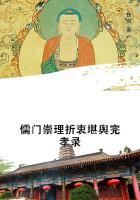The morality of political economy is gain, labor and thrift, sobriety -- and yet political economy promises to satisfy my needs. The political economy of morality is the wealth of a good conscience, of virtue, etc. But how can I be virtuous if I do not exist? And how can I have a good conscience if I am not conscious of anything? It is inherent in the very nature of estrangement that each sphere imposes upon me a different and contrary standard; one standard for morality, one for political economy, and so on. This is because each of them is a particular estrangement of man and each is centred upon one particular area of estranged essential activity: each is related in an estranged way to the other... Thus M. Michael Chevalier accuses Ricardo of abstracting from morality. But Ricardo allows political economy to speak its own language. If this language is not that of morality, it is not the fault of Ricardo. M. Chevalier abstracts from political economy insofar as he moralizes, but he really and necessarily abstracts from morality insofar as he deals with political economy. The relationship of political economy to morality is either an arbitrary and contingent one which is neither founded nor scientific, a simulacrum, or it is essential and can only be the relationship of economic laws to morality. If such a relationship does not exist, or if the opposite is rather the case, can Ricardo do anything about it? Moreover, the opposition between political economy and morality is only an apparent one. It is both an opposition and not an opposition.
Political economy merely gives expression to moral laws in its own way.
Absence of needs as the principle of political economy is most in its theory of population. There re too many people. Even the existence of man is a pure luxury, and if the worker is "moral" he will be economical in procreation. (Mill suggests public commendation of those who show themselves temperate in sexual matters and public rebukes of those who sin against this barrenness of marriage... Is this not the morality, the doctrine, of asceticism?) The production of people appears as a public disaster.
The meaning which production has for the wealthy is revealed in the meaning which it has for the poor. At the top, it always manifests itself in refined, concealed, and ambiguous way -- as an appearance. At the bottom, it manifests itself in a crude, straightforward, and overt way -- as a reality. The crude need of the worker is a much greater source of profit than the refined need of the rich. The basement dwellings in London bring in more for the landlords than the palaces -- i.e., they constitute a greater wealth for him and, from an economic point of view, a greater social wealth.
Just as industry speculates on the refinement of needs, so too it speculated on their crudity. But the crudity on which it speculates is artificially produced, and its true manner of enjoyment is therefore self-stupefaction, this apparent satisfaction of need, this civilization within the crude barbarism of need. The English ginshops are, therefore, the symbolic representation of private property. Their luxury demonstrated to man the true relation of industrial luxury and wealth. For that reason, they are rightly the only Sunday enjoyment of the English people, and are at least treated mildly by the English police.
We have already seen how the political economist establishes the unity of labor and capital in a number of different ways:
(1) capital is accumulated labor;
(2) the purpose of capital within production -- partly the reproduction of capital with profit, partly capital as raw material (material of labor) and partly as itself a working instrument (the machine is capital directly identified with labor) -- is productive labor;
(3) the worker is a piece of capital;
(4) wages belong to the costs of capital;
(5) for the worker, labor is the reproduction of his life capital;
(6) for the capitalist, it is a factor in the activity of his capital. Finally, (7) the political economist postulates the original unity of capital and labor as the unity of capitalist and worker, which he sees as the original state of bliss. The fact that these two elements leap at each other's throats in the form of two persons is a contingent event for the political economist, and hence only to be explained by external factors (see Mill).
Those nations which are still dazzled by the sensuous glitter of precious metals and, therefore, make a fetish of metal money are not yet fully developed money nations. Compare England and France. The extent to which the solution of theoretical problems is a function of practice and is mediated through practice, and the extent to which true practice is the condition of a real and positive theory is shown, for example, in the case of fetish-worship . The sense perception of a fetish-worshipper is different from that of a Greek because his sensuous existence is different.
The abstract hostility between sense and intellect is inevitable so long as the human sense [Sinn] for nature, the human significance [Sinn] of nature, and, hence, the natural sense of man, has not yet been produced by man's own labor.
Equality is nothing but a translation into French -- i.e., into political form -- of the German "Ich - Ich". Equality as the basis of communism is its political foundation. It is the same as when the German founds it on the fact that he sees man as universal self-consciousness.
It goes without saying that the supersession of estrangement always emanates from the form of estrangement which is the dominant power -- in Germany, self-consciousness; in France, equality, because politics; in England, real, material, practical need, which only measures itself against itself.
It is from this point of view that Proudhon should be criticized and acknowledged.















